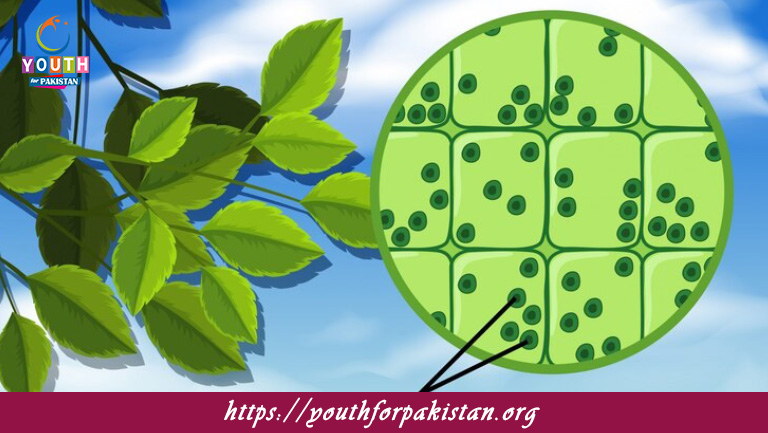Welcome to the Plastids/Chloroplasts MDCAT MCQs with Answers. In this post, we have shared Plastids/Chloroplasts Multiple Choice Questions and Answers for PMC MDCAT 2024. Each question in MDCAT Biology offers a chance to enhance your knowledge regarding Plastids/Chloroplasts MCQs in this MDCAT Online Test.
What is the main function of chloroplasts in plant cells?
a) Protein synthesis
b) Photosynthesis
c) Cellular respiration
d) Waste removal
Which pigment is primarily responsible for absorbing light in chloroplasts?
a) Carotene
b) Xanthophyll
c) Chlorophyll
d) Anthocyanin
What is the name of the structure inside chloroplasts where the light-dependent reactions of photosynthesis occur?
a) Stroma
b) Thylakoid membrane
c) Mitochondrion
d) Golgi apparatus
The fluid-filled space inside a chloroplast is called the:
a) Matrix
b) Stroma
c) Cytoplasm
d) Nucleoplasm
Chloroplasts are primarily found in which part of a plant?
a) Roots
b) Stems
c) Leaves
d) Flowers
Plastids involved in the synthesis and storage of starch are called:
a) Chromoplasts
b) Chloroplasts
c) Leucoplasts
d) Amyloplasts
Chloroplasts are a type of:
a) Ribosome
b) Mitochondria
c) Plastid
d) Lysosome
Which of the following is NOT a type of plastid?
a) Amyloplast
b) Chromoplast
c) Chloroplast
d) Peroxisome
Which plastid is responsible for storing pigments other than chlorophyll in plants?
a) Chromoplast
b) Leucoplast
c) Amyloplast
d) Chloroplast
Which of the following structures is unique to chloroplasts and involved in photosynthesis?
a) Cristae
b) Thylakoid membrane
c) Golgi apparatus
d) Rough endoplasmic reticulum
The stack of thylakoids in the chloroplast is known as a:
a) Grana
b) Lamella
c) Stroma
d) Cristae
Which organelle is thought to have evolved from photosynthetic bacteria through endosymbiosis?
a) Mitochondrion
b) Chloroplast
c) Golgi apparatus
d) Nucleus
The light-independent reactions of photosynthesis occur in the:
a) Thylakoid membrane
b) Grana
c) Stroma
d) Cytoplasm
Which pigment in chloroplasts absorbs light most efficiently in the blue-violet and red parts of the electromagnetic spectrum?
a) Chlorophyll a
b) Chlorophyll b
c) Carotene
d) Xanthophyll
Plastids that contain pigments and give color to flowers and fruits are called:
a) Amyloplasts
b) Chromoplasts
c) Chloroplasts
d) Leucoplasts
Which of the following is NOT a function of chloroplasts?
a) Photosynthesis
b) Storing starch
c) Producing oxygen
d) Synthesizing proteins
The double membrane of the chloroplast surrounds which internal space?
a) Thylakoid
b) Stroma
c) Cytoplasm
d) Cristae
Which plastid is responsible for the synthesis of lipids in plant cells?
a) Chloroplast
b) Chromoplast
c) Elaioplast
d) Amyloplast
Which of the following is a characteristic of plastids?
a) They are found only in animals
b) They can differentiate into different types
c) They lack membranes
d) They do not store pigments
The conversion of light energy to chemical energy in chloroplasts occurs in the:
a) Nucleus
b) Thylakoid membrane
c) Stroma
d) Mitochondria
Chlorophyll is embedded in which part of the chloroplast?
a) Inner membrane
b) Thylakoid membrane
c) Outer membrane
d) Stroma
Which of the following plastids is involved in the storage of fats?
a) Chromoplast
b) Chloroplast
c) Leucoplast
d) Elaioplast
Which of the following is not a feature of chloroplasts?
a) Double membrane
b) Circular DNA
c) Cristae
d) Thylakoids
Plastids that are colorless and store nutrients such as starch are known as:
a) Chromoplasts
b) Leucoplasts
c) Chloroplasts
d) Amyloplasts
Which plastid type is most involved in the process of photosynthesis?
a) Chromoplast
b) Leucoplast
c) Chloroplast
d) Amyloplast
Which part of the chloroplast contains the enzymes necessary for carbon fixation during photosynthesis?
a) Thylakoid membrane
b) Outer membrane
c) Inner membrane
d) Stroma
Which of the following plastids contains DNA and ribosomes, enabling them to produce some proteins?
a) Chloroplast
b) Chromoplast
c) Leucoplast
d) Mitochondrion
Which type of plastid can change into another type, depending on the needs of the cell?
a) Amyloplast
b) Chloroplast
c) Chromoplast
d) All of the above
What is the role of the stroma in chloroplasts?
a) Absorbing light
b) Synthesizing proteins
c) Fixing carbon dioxide
d) Storing pigments
Which of the following can be found inside the thylakoid membranes of chloroplasts?
a) ATP synthase
b) DNA
c) Ribosomes
d) Lipids
Chloroplasts originated from:
a) Fungi
b) Cyanobacteria
c) Protozoa
d) Viruses
The production of oxygen in chloroplasts occurs during which phase of photosynthesis?
a) Light-dependent reactions
b) Calvin cycle
c) Glycolysis
d) Krebs cycle
Which type of plastid is primarily involved in pigment storage in fruit ripening?
a) Chloroplast
b) Chromoplast
c) Amyloplast
d) Leucoplast
Chloroplasts are not found in which part of the plant?
a) Green leaves
b) Roots
c) Stems
d) Green stems
Chlorophyll absorbs most light in which regions of the visible spectrum?
a) Green and yellow
b) Blue and red
c) Violet and green
d) Orange and yellow
Which process occurs in the thylakoid membranes of the chloroplast?
a) Glycolysis
b) Calvin cycle
c) Electron transport chain
d) Citric acid cycle
What is the primary function of the granum in chloroplasts?
a) Transporting molecules
b) Storing starch
c) Harvesting light energy
d) Synthesizing proteins
Chloroplasts are unique to which type of cell?
a) Animal cells
b) Plant cells
c) Bacterial cells
d) Fungal cells
The Calvin cycle occurs in the:
a) Thylakoid membrane
b) Outer membrane
c) Grana
d) Stroma
If you are interested to enhance your knowledge regarding Physics, Chemistry, Computer, and Biology please click on the link of each category, you will be redirected to dedicated website for each category.








